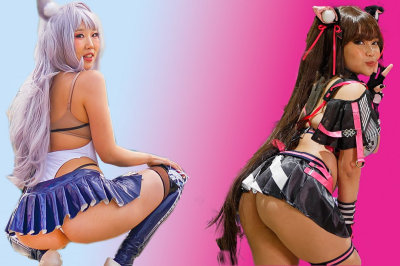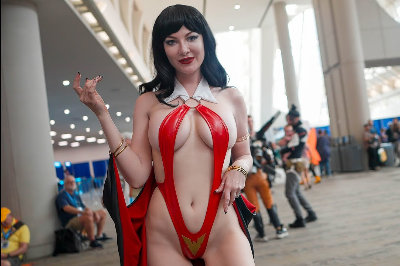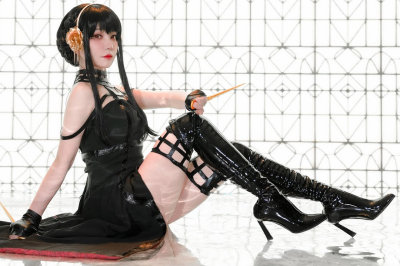THE SHAPE OF THINGS - Q&A with writer/director NEIL LABUTE
Movie Feature by Susan Hodgetts
Neil LaBute's latest, a big screen adaptation of his 2001 stage play "The Shape of Things," set in the college and art world, examines the nature of art and morality, not necessarily, and necessarily, related.
"There's a difficulty inherent in a piece where you're talking about art," says LaBute. I've put all [the explanation] at the end of the film like in a play, at the end you can discuss the morality of what she [the main character Evelyn] has done. I understand Evelyn, I know who she is. And this is a piece as much about writers as it is about fine artists. Writers in general are vampiric - they're looking to take from some other source. I see [things] myself and feel them emotionally, but then I also think "I would love to poach that!
"There's a few changes different from the play. Rachel [Weisz] had been working with Working Title on ABOUT A BOY and a representative came to see a preview. And then Working Title and Focus Features split the cost of the film because they enjoyed the play - the hitch was that we didn't want it to open up like a normal play - but they said feel free to present it like on stage. There's actually the same amount of scenes - there's 10 on stage, and 10 in the film. We also moved it to a California setting out of necessity (originally it's set in North West USA). There're some cosmetic changes. I wanted it to be theatrical. I wanted to capture that [theatricality] on film. It's usually important to get the same actors as well. And all of this grew from the enjoyment in the rehearsal room. We were just bantering, and the idea that we could make a film out of it came out of this. There was no desire to work with any other actors."
LaBute denies knowledge of any conscious parallels between THE SHAPE OF THINGS and VERTIGO, but says, "Since you've picked a film that's really good, I'm not going to say no! I didn't go into it thinking that but there's something of the Pygmalion sensibility in there, a desire to mould someone. There's less love in it here though. Evelyn's love is for her work."
Wouldn't more people in the audience at Evelyn's art show at the end have said what she was doing was wrong?
"Possibly," says LaBute. "The notion of it is so particular and peculiar to them. But in the theatre play the actors would go and sit in the theatre whilst Evelyn was doing her show, and the [theatre] audience become the audience in the film watching the show. So I think there was a sense of that same thing happening. But I was big on sound on what was going on outside the frame. People in the audience of the show were probably too nice to make a big stink about it. And well, Adam's there to look at and he's torn as to the result. It's a naughty thing [for Evelyn] to do, but he got to sleep with her and he got to look pretty good. There's something nagging at me to say that it's not a great tragedy, just a shitty thing to happen, but he's come out of it ok."
Asked if he would define what Evelyn defines as art, LaBute says "Yes, sure, because she has [defined it as that]. I wouldn't disagree. [Although] there's a fine subjective line. But Adam and Evelyn could both be right. He sees it as shit, she sees it as art. Evelyn is very truthful. It may not always be what people want to hear, and although she knew she would have to lie [to acquire her art], she's a very truthful character. I had a really well rehearsed cast so that made it quicker and [because they'd already done the play] we could film huge chunks, they already knew all their lines. We did it all in an 18-day shoot."
Commenting on his decision to feature Elvis Costello on the entire soundtrack to the film, LaBute says "on stage, we used the Smashing Pumpkins music because we loved the US brash sound and the energy of it, not having an intermission on stage, that harsh, sonic sound was great, and it would allow the audience to kind of think about it. A film is perpetual whereas on stage you have a scene change to look at and the sets have to be turned around so the Smashing Pumpkin song takes that long to get going, the sound washes over your audience and gives them a chance to rest, and I like that on stage. Whereas on film you don't have that kind of bridge so I needed short, catchy songs, a sort of master craftsman."
Is there an underlying cynicism in the fact that it's a woman manipulating a man? "No. Just more sceptical. But the fact that it's a woman manipulating a man is neither here nor there. It's just another person manipulating another person."



